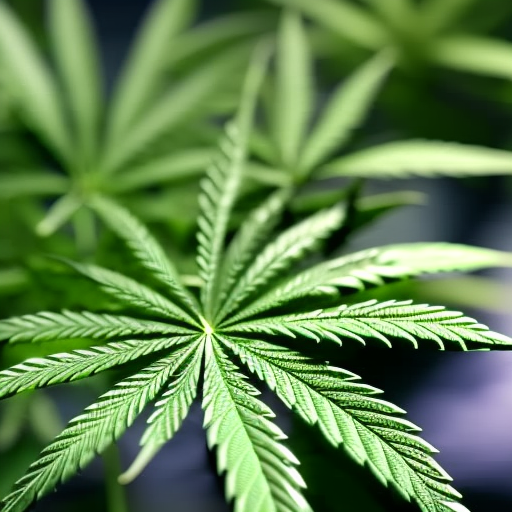
A recent study conducted by researchers at the University of Colorado, Colorado State University, and University of Haifa has found that individuals with anxiety experience better quality sleep on days when they use marijuana compared to days when they use alcohol or nothing at all. The study, which was funded by a National Institutes of Health grant, analyzed the subjective sleep quality of 347 people who reported using cannabis to treat anxiety.
Participants in the study were asked to fill out daily surveys for 30 days, documenting their substance use and subjective sleep experience from the previous night. The researchers compared outcomes from non-use days, cannabis-only days, alcohol-only days, and co-use days.
The results of the study revealed that participants reported better sleep after cannabis-use-only and after co-use, but not after alcohol-use-only. This suggests that cannabis may have a positive effect on sleep quality for individuals with anxiety symptoms. Additionally, individuals who used cannabis more frequently reported greater sleep quality on days when they only used cannabis compared to those who used it less frequently.
Interestingly, the study also found that the sleep effects of cannabis alone did not weaken over time for individuals who reported more frequent use of marijuana and alcohol. This suggests that tolerance did not influence sleep quality in this population.
While alcohol has been found to help people fall asleep, the study supported prior findings that it does not enhance overall sleep quality, especially when compared to cannabis. These findings add to the emerging evidence of cannabis’s sleep-enhancing properties.
The researchers noted that there are still many unanswered questions about how different concentrations and cannabinoid profiles of cannabis affect sleep outcomes. Future clinical trials could help fill these knowledge gaps and provide a more comprehensive understanding of how cannabis affects sleep.
Overall, this study provides further support for the potential benefits of using marijuana to improve sleep quality in individuals with anxiety. However, it is important to note that each individual may respond differently to cannabis and further research is needed to fully understand the relationship between cannabis use and sleep.
In related studies, cannabis has also been found to improve sleep quality in individuals with chronic health conditions and neurological disorders. Furthermore, legal access to marijuana has been associated with a decrease in the purchase of over-the-counter sleep medications.
In conclusion, this study adds to the growing body of evidence suggesting that individuals with anxiety experience better quality sleep on days when they use marijuana compared to alcohol or nothing at all. Further research is needed to explore the specific mechanisms underlying this effect and how different concentrations and cannabinoid profiles of cannabis influence sleep outcomes.

